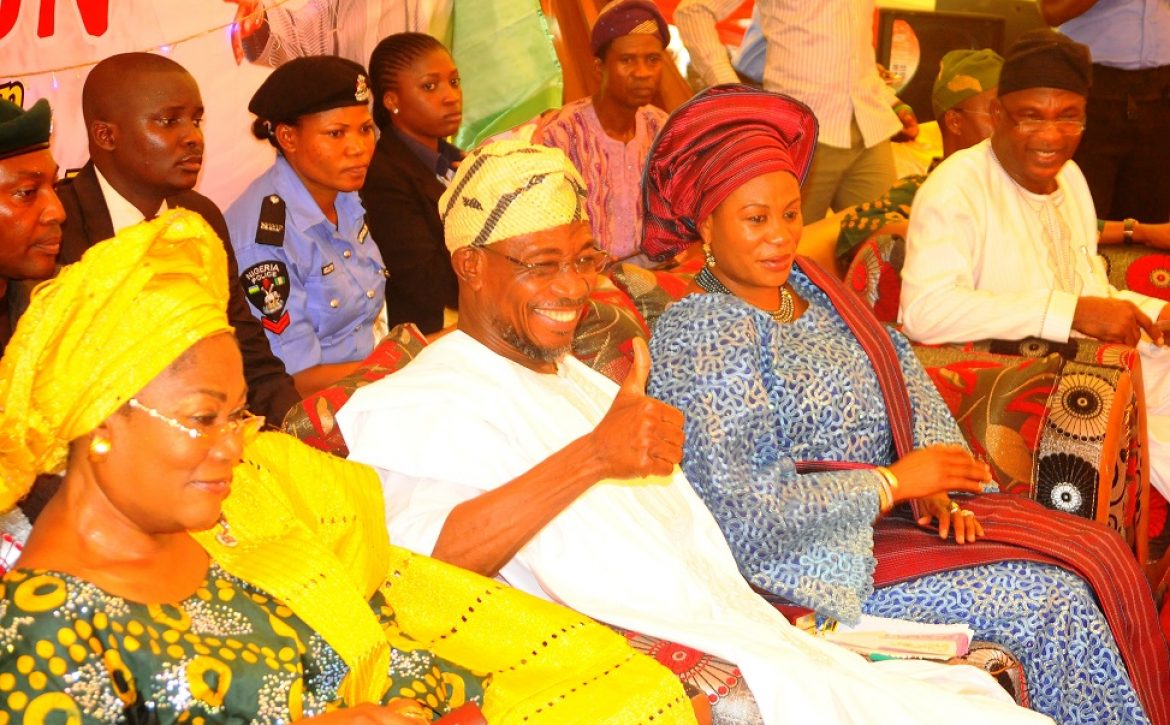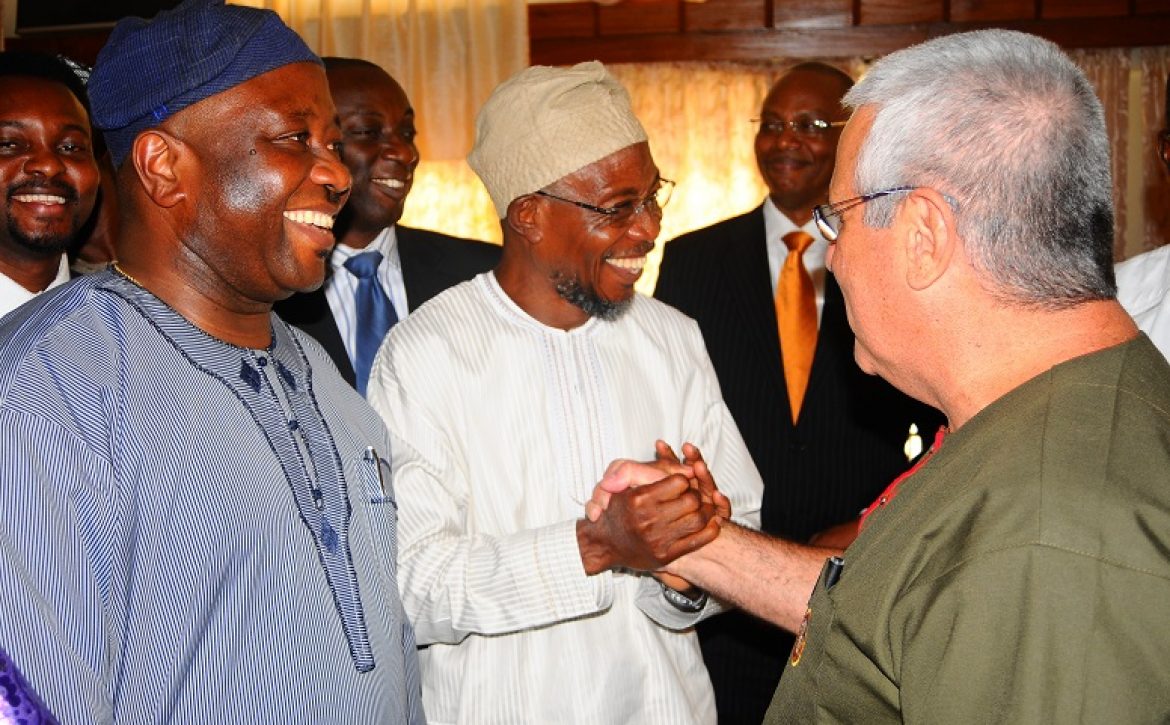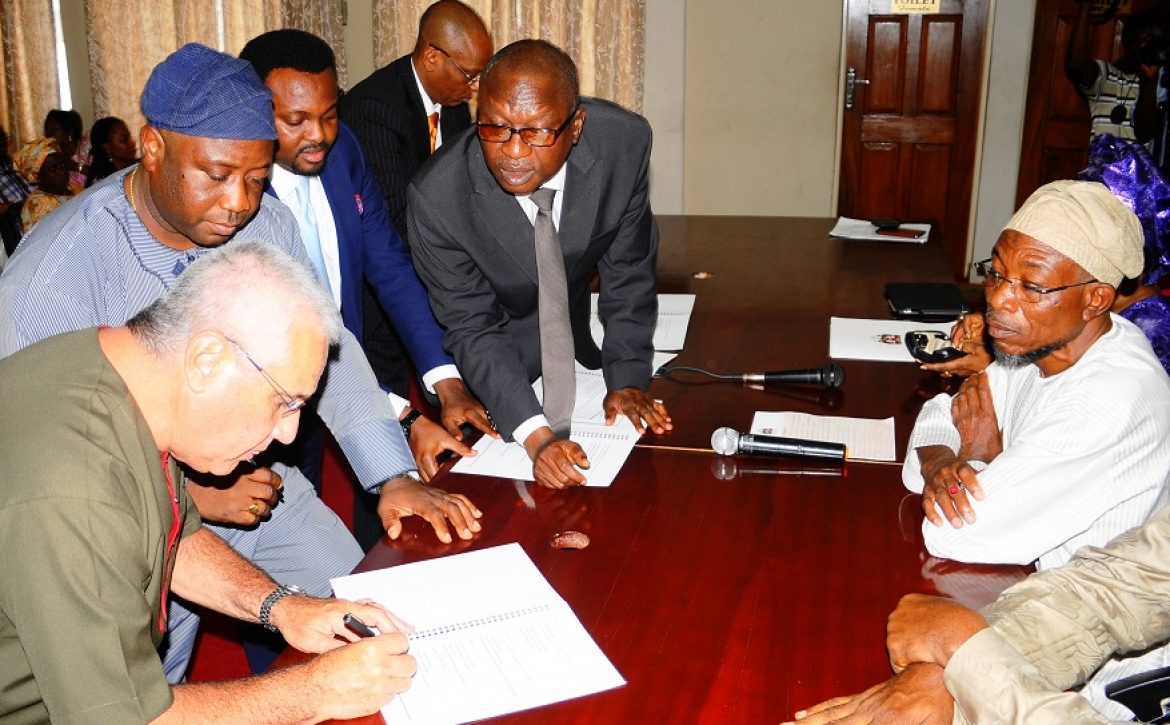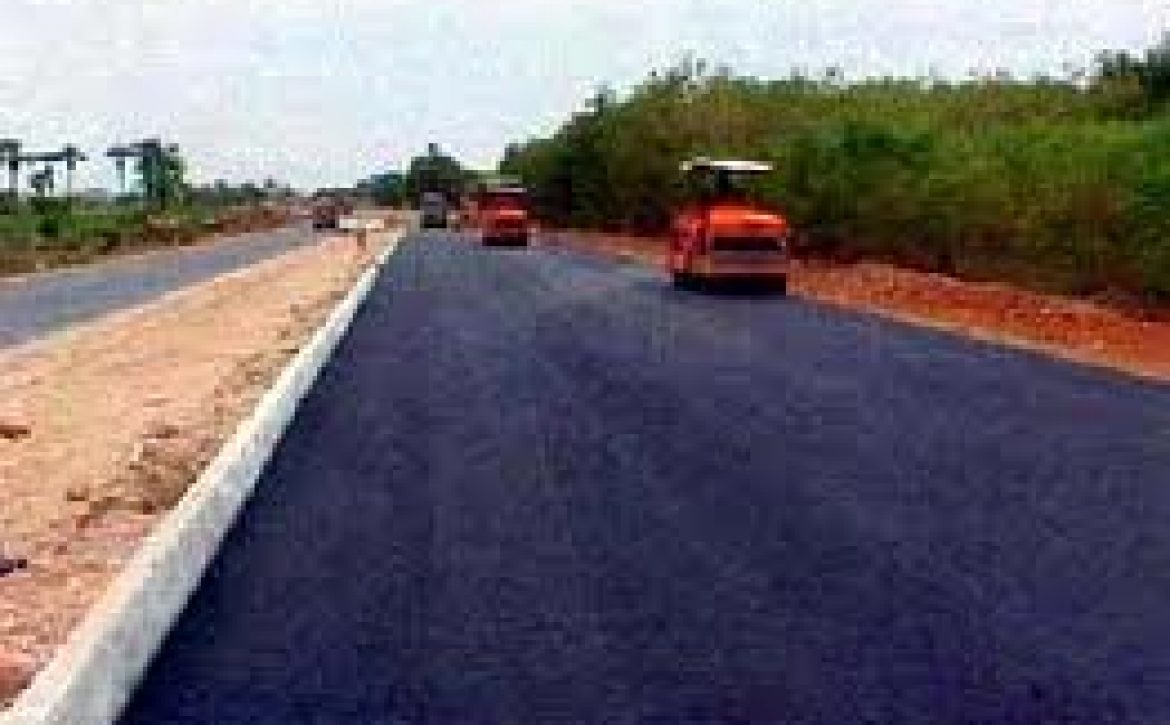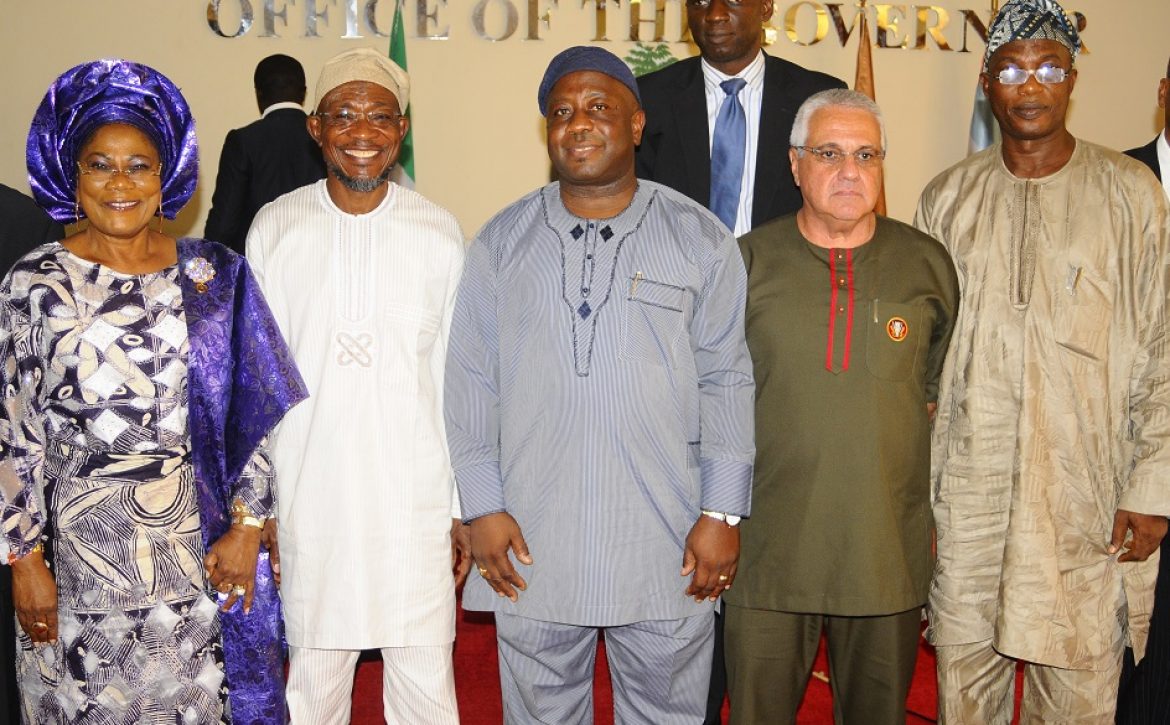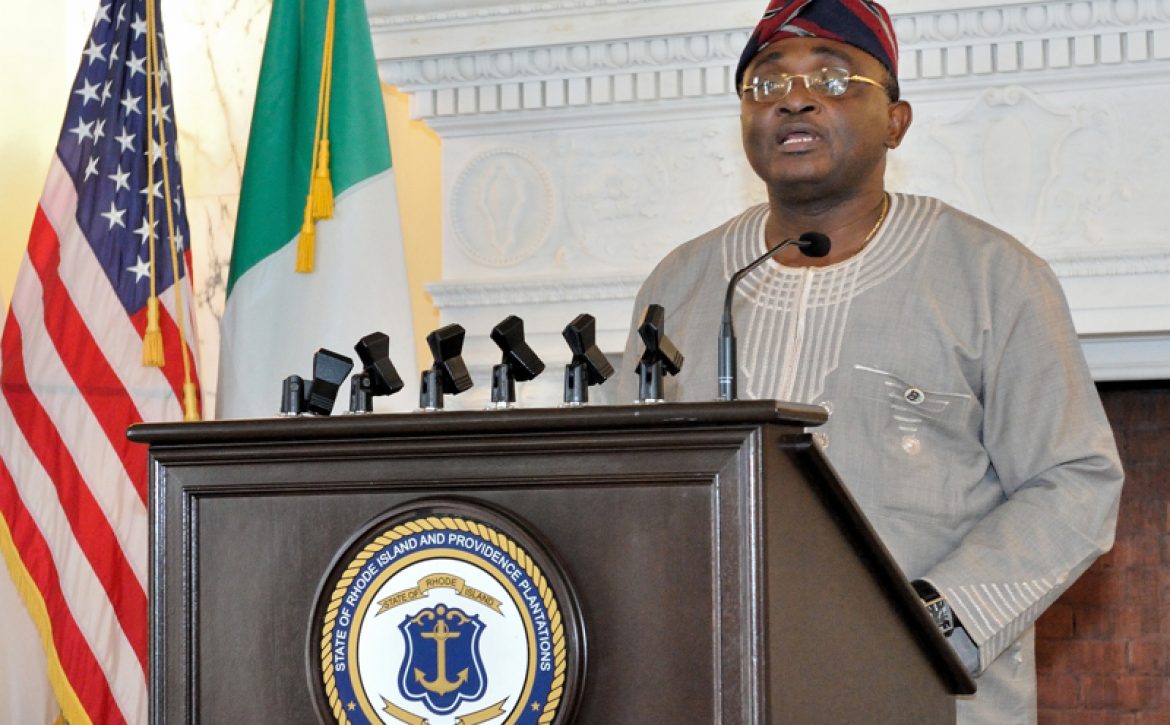Photos from the 5th edition of the interactive programme with Gov. Aregbesola and the Public “Gban-gba Dekun” in Boripe/Ifelodun and Odo-Otin Federal Constituency, at Akin-Orun Grammar School, Ikirun the State of Osun on Tuesday 19-11-2013

From left, Deputy Governor State of Osun, Mrs Titi Laoye-Tomori; Governor, Ogbeni Rauf Aregbesola; his wife, Sherifat; Secretary to the State Government, Alhaji Moshood Adeoti and others, during the 5th edition of an interactive programme between the Public and the Governor, tagged, “Gban-gba Dekun” in Boripe/Ifelodun and Odo-Otin Federal Constituency, at Akin-Orun Grammar School, Ikirun the State of Osun on Tuesday 19-11-2013

Governor State of Osun, Ogbeni Rauf Aregbesola acknowledging cheers from the crowd after the 5th edition of an interactive programme between the Public and the Governor, tagged, “Gban-gba Dekun” in Boripe/Ifelodun and Odo-Otin Federal Constituency, at Akin-Orun Grammar School, Ikirun the State of Osun on Tuesday 19-11-2013


Governor State of Osun, Ogbeni Rauf Aregbesola acknowledging cheers from the crowd after the 5th edition of an interactive programme between the Public and the Governor, tagged, “Gban-gba Dekun” in Boripe/Ifelodun and Odo-Otin Federal Constituency, at Akin-Orun Grammar School, Ikirun the State of Osun on Tuesday 19-11-2013

Governor State of Osun, Ogbeni Rauf Aregbesola (left) dancing to songs from the market women, during the 5th edition of an interactive programme between the Public and the Governor, tagged, “Gban-gba Dekun” in Boripe/Ifelodun and Odo-Otin Federal Constituency, at Akin-Orun Grammar School, Ikirun the State of Osun on Tuesday 19-11-2013

Governor State of Osun, Ogbeni Rauf Aregbesola (left) and his Deputy, Mrs Titi Laoye-Tomori acknowledging cheers from the crowd, during the 5th edition of an interactive programme between the Public and the Governor, tagged, “Gban-gba Dekun” in Boripe/Ifelodun and Odo-Otin Federal Constituency, at Akin-Orun Grammar School, Ikirun the State of Osun on Tuesday 19-11-2013


